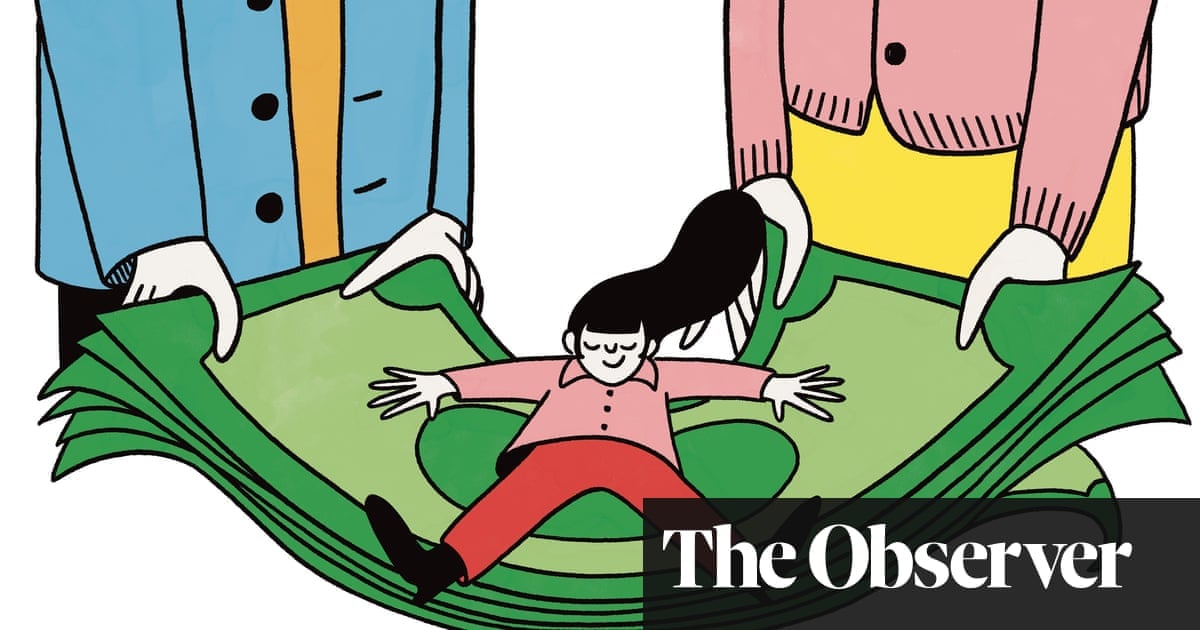- cross-posted to:
- news@lemmy.world
- cross-posted to:
- news@lemmy.world
You know the Bank of Mum and Dad when you see it: it’s your friend who seems broke, but always has a safety net, or who suddenly (but discreetly) acquires the deposit for a home. It’s those who stayed with their parents while they saved for a flat, or stuck it out in a profession they were passionate about even though the wages are chronically low. It’s those who do not need to consider the financial costs of having children. It’s those whose grandparents are covering nursery or university fees, with the Bank of Grandma and Grandad already driving an economic wedge between different cohorts in generations Alpha (born between 2010 and 2024) and Z (born in the late 1990s and early 2000s).
This is the picture we know, but the Bank of Mum and Dad is not just a luxury confined to the 1% – it is also evident in families like mine. I grew up in a working-class household and was the first person in my family to get a degree, but it was the fact my parents had scrimped in the 1980s to purchase properties in London (and allowed me to crash in one throughout my 20s) that has arguably been the true source of opportunities in my life.
In recent years, we have rightly widened the conversation about privilege in society. And yet how honest are we about one of the most obvious forces shaping anyone under 45: the presence or absence of a parental safety net? The truth is that we live in an inheritocracy. If you’ve grown up in the 21st century, your opportunities are increasingly determined by your access to the Bank of Mum and Dad, rather than by what you earn or learn. The economic roots of this story go back to the 1980s, but it accelerated after the 2008 financial crisis, as private wealth soared and wage growth stalled. In the 2020s, rather than a meritocracy – where hard work pays off – we have evolved into an inheritocracy, based on family wealth.



That sounds just like Reagan and his so-called “welfare queen”.
I know everyone is reading this in their own political context, so I realise it’s open to a lot of misinterpretation. But just try and take the idea on its own, in its essence.
If you really had the free choice in the morning to bake artisan bread or go and wade in sewage and clean a communal sewer, do you not think people would need a little bit of motivation into the maintaince job using something more than kind words?
Once you start using capital (money) to indicate need in society (because human preference is not automatically aligned with human needs) then you end up with a situation where some people can choose to accrue capital if they hold their nose and do the shitty jobs no-one else wants to.
Are you telling me that if the extra the sewer cleaner earned was taken away and given to the bakers kids so that things are “nice and equal”, that you’re going to find enough people to clean the sewers in the future?
C’mon. I want the world to be fairer too. I think capitalism’s excesses are gross. But people have to feel they can personally gain else the way to indicate what really needs doing is completely broken.
Personal gain over what’s best for everyone is the reason we’re in this shit show.
It’s time to remember that no man is an island, and we need each other’s ideas and commitment in order to fix the mess caused by unfettered capitalism.
Personal gain (or rather personal security) is how humans work. And personal gain is fine when it’s mutual and not exploitative. That’s what good trade is. The answer to unfettered capitalism isn’t no capitalism, it’s fettered capitalism. Or rather social capitalism (also modernised social democracy)
Not because it’s pure, but because it’s realistic, and works. On the other hand expecting people en masse to suddenly discover they all want to personally sacrifice for the same vision of the greater good without enormous amounts of control and coercion is complete fantasy.